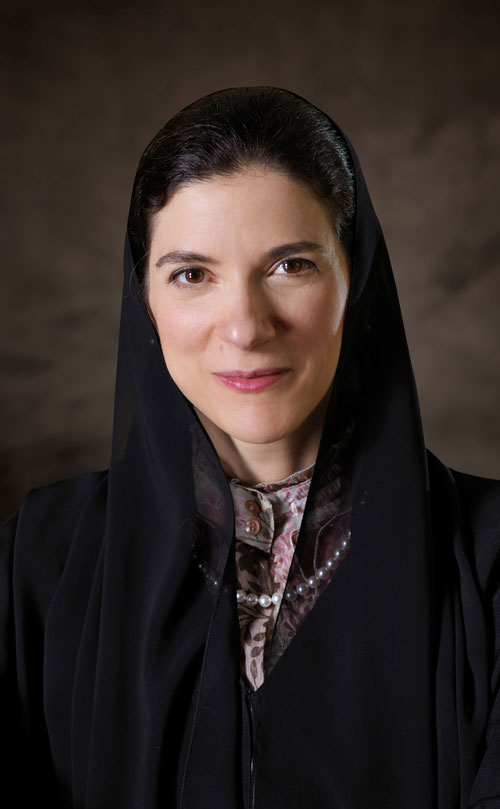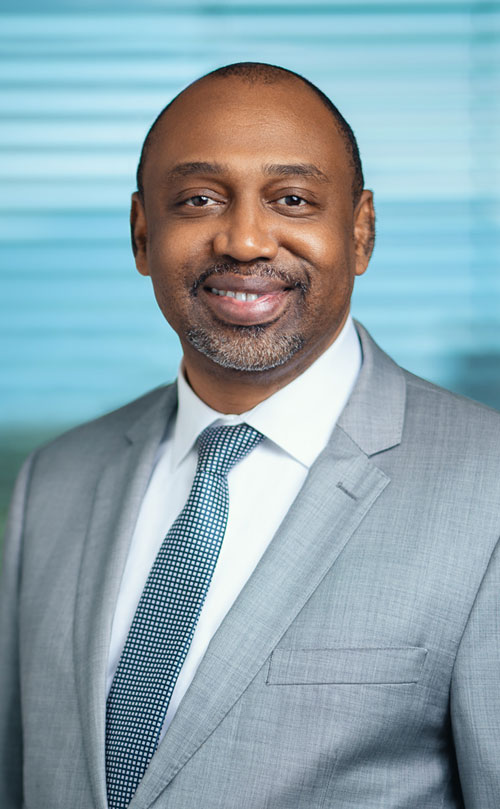- Nigeria
- Democratic Republic of the Congo
- Mozambique
- India
- Uganda
- Burkina Faso
- Ghana
- Niger
- Cameroon
- Mali
- United Republic of Tanzania
- Others
SOURCE: World Health Organization
2019 was a year of ambition and action. After recognizing that radical steps were needed to meet global targets for reducing cases and deaths, momentum has continued to build among the global malaria community to not only get back on track but lay the groundwork to end malaria for good within a generation.
The RBM Partnership to End Malaria is the largest global platform for coordinated action towards a world free from malaria. In 2019, the RBM Partnership worked throught its network of over 500 partners to shape the vision of a malaria-free world, keep malaria high on the political agenda, build dynamic coalitions, and catalyse the global response.
The world expects a lot from our community. Millions of lives are at stake, and everyone has a role to play in winning humanity’s long fight against this ancient disease. The RBM Partnership belongs to everyone working to end malaria in their community, in their country, and around the world, and will continue to serve as a platform to coordinate, convene, and forge consensus on the actions needed to see this fight through.

Professor Maha Taysir Barakat has held the post of Director General of the Health Authority Abu Dhabi from 2013 until 2018. Previously, she was Co-Founder, Medical & Research Director and Consultant Endocrinologist at the Imperial College London Diabetes Centre (ICLDC) in Abu Dhabi, and Reader at Imperial College London. In 2013, she became a visiting Professor at Imperial College London.
Prof Barakat assumed the role of Board Chair in June 2019.
She has served as a member of the Social Development Committee of the Executive Council of the Government of Abu Dhabi, and Board member of several Government of Abu Dhabi-related entities including the Board of Trustees of Khalifa University, the Family Development Foundation, the Abu Dhabi Quality and Conformity Council, and the Statistics Centre Abu Dhabi.
As part of her role within the Health Authority, in addition to the fight against lifestyle-related disease, Professor Barakat has supported several public health eradication campaigns against communicable disease both within the UAE and internationally, including Africa and the Indian subcontinent.
For her work to the community in the UAE, Professor Barakat was appointed an Officer of the Order of the British Empire (OBE) in 2010, was awarded the Abu Dhabi Prize in 2011, and given the Imperial College Medal in 2013.

Dr Abdourahmane Diallo is a Medical Doctor with a Master`s degree in International Public Health from the Johns Hopkins University School of Public Health and has extensive clinical and international public health experience.
Dr Diallo took office as the CEO of the RBM Partnership to End Malaria in April 2019.
Dr Diallo was previously appointed as Minister and Health Advisor to the President of Guinea. Earlier, he served as Minister of Health of Guinea for two and half years. Before joining the government, Dr Diallo was the Director of Public Health and Supply Chain Systems Strengthening for the USAID | DELIVER PROJECT, funded by the United States Agency for International Development (USAID) and implemented by John Snow, Inc. Dr Diallo oversaw the technical work of more than 22 country offices, leading USAID core funded activities.
Prior to that, Dr Diallo served as Country Director for the U.S. President Emergency Plan for AIDS Relief (PEPFAR) funded by the Supply Chain Management System project in Tanzania. He was responsible for the overall management of country office strategic, technical, administrative, and financial activities.
Dr Diallo’s vast work has covered Africa, Asia and the Caribbean.
The RBM Partnership To End Malaria aims to highlight and reinvigorate the commitment of Francophone countries in the fight against malaria, securing political declarations and commitments from leaders of malaria-endemic countries.
To commemorate World Malaria Day 2019 events were organized in Paris, in collaboration with the French Government and the Mayor of the city. The Partnership organized a high-level discussion to highlight, celebrate and reinvigorate the commitment of Francophone countries in the fight against malaria with distinguished guests, including the First Ladies of Haiti and Niger, the Vice President of Gabon, Ministers, and Mayors.
On this occasion, Francophone Mayors signed a “Zero Malaria Starts with Me” declaration, committing to integrate malaria in urban development strategies in support of global efforts towards a malaria-free world.
Numerous francophone arts and sports personalities supported World Malaria Day and the Zero Malaria Starts with Me campaign. These include Fatoumata Diawara, Cyril Kongo, Omar Sy, and female footballers from France and elsewhere.
Click on an icon to highlight the type of support. Click again to reset.
In addition to country support pictured here, RBM also provided technical assistance to the E8, ECCAS, Sahel Malaria Elimination Initiative, and the Great Lakes Malaria Initiative.
SOURCE: World Health Organization
“Zero Malaria Starts with Me” is a grassroots campaign, co-led by the African Union Commission and the RBM Partnership to End Malaria, that aims to keep malaria high on the political agenda, mobilize additional resources, and empower communities to take ownership of malaria prevention and care.
The campaign, first launched in Senegal in 2014, was officially endorsed at the African Union Summit by all African Heads of State in July 2018. It engages all members of society: political leaders who control government policy decisions and budgets; private sector companies that will benefit from a malaria-free workforce; and communities affected by malaria, whose buy-in and ownership of malaria control interventions is critical to success.
In 2019, seven additional African countries have joined the growing “Zero Malaria” movement, launching their own national campaigns, these are:
The Minister of Health launched Zero Malaria Starts with Me on World Malaria Day 2019, reiterating the country’s commitment with donors, community members and religious leaders to eliminate malaria in Côte d’Ivoire by 2030.
His Majesty King Mswati III launched the campaign together with the national End Malaria Fund in May 2019. The campaign and fund are focused on mobilising resources and community action necessary to eliminate malaria by 2022
Mr Demeke Mekonnen, Ethiopia’s Deputy Prime Minister launched the national Zero Malaria Starts with Me Campaign at the beginning of October 2019.
The First Lady of Ghana, Mrs Rebecca Akufu-Addo, launched the national Zero Malaria Starts with Me campaign on World Malaria Day 2019. The country has developed a multisectoral action and resource mobilisation plan to fight malaria. Efforts are underway to reconstitute the Ghana Malaria Foundation and promote parliamentary engagement on malaria.
During the 2019 World Malaria Day celebrations in Abuja, Nigeria launched the national Zero Malaria Starts with Me campaign which aims at increasing awareness and mobilizing the entire Nigerian population on the availability and access to prevention and appropriate treatment of malaria using anti-malarial treatments and rapid-diagnostic testing.
The country launched its national campaign on World Malaria Day 2019, the Mayor of Freetown, Yvonne Aki-Sawyerr, is closely involved as a campaign champion.
During the Southern Africa Development Community (SADC) Malaria Day in November 2019, Dr Ummy Mwalimu, Minister of Health, Community Development, Gender, Seniors and Children launched the Zero Malaria Starts with Me campaign. Tanzanian parliamentarians are already supporting the campaign.
In many cases, targeted implementation assistance can catalyse greater impact for major investments in interventions to fight malaria. The RBM Partnership mobilises experienced local and international consultants to identify and address bottlenecks across a range of topics, including planning long-lasting insecticidal net (LLIN) campaigns, social and behaviour change communications (SBCC), domestic resource mobilisation, advocacy, and to address emergencies.
In 2019, Alliance for Malaria Prevention continued to provide implementation assistance to countries planning ITN distribution campaigns, contributing to keeping ITN distributions on track and supporting countries to achieve their universal coverage targets. The AMP Partnership includes more than 40 organizations working to scale-up and maintain universal coverage targets for ITNs through all available channels, including mass distribution campaigns and continuous distribution. In 2019, AMP focused on the development and sharing of best practices, quality standards, lessons learned and recommendations for malaria prevention with ITNs, and supports the implementation of ITN distribution activities with the goal of strengthening skills and capacity at the country level.
The RBM Partnership increased its support for SBCC planning in 2019, supporting NMCPs in developing communications tools, M&E frameworks and overall strategy development to support LLIN campaigns and case management, including support to Zero Malaria Starts with me.
The RBM Partnership, working under the leadership and at the request of WHO, supports NMCPs in undertaking malaria programme reviews (MPR), which identify strengths and weaknesses of NMCP strategy implementation and in the development of national strategic plans (NSP) in line with global guidance and national priorities.
The new Innovation and Access workstream, housed under the Advocacy and Resource Mobilisation Partner Committee (ARMPC), aims to sustain and increase cross-sectoral support for investing in malaria innovations, creating demand for the most effective innovations, and supporting scale-up of innovations for the populations most in need of accessing them.
In 2019, the workstream prepared key messages on the need to increase investment in malaria innovations for dissemination during major events like World Malaria Day, World Health Assembly and the Global Fund Replenishment conference.
Adjacent to the 6th Global Fund Replenishment in Lyon on 10 October 2019, the I&A Workstream hosted an Innovation and Access Roundtable titled, “Increasing Access to Innovations in the 6th Global Fund Replenishment Period.”
Four bottlenecks in the pathway to rolling out innovations in healthcare were chosen to frame the discussions at this roundtable: complex and fragmented international funding sources; inconsistent prequalification and regulatory processes; inconsistent alignment between centralized and local regulators; and price-focused tendering process.
Given the crucial role the private sector plays in financing, developing, and delivering new products, the Roundtable sought to actively bring businesses into the malaria innovation and access conversation, take the next steps to further develop previously suggested solutions to specific bottlenecks, and suggest future opportunities to formally integrate the private sector into similar joint discussions in the future.
For the full annual report, including the financing report, visit the link below.